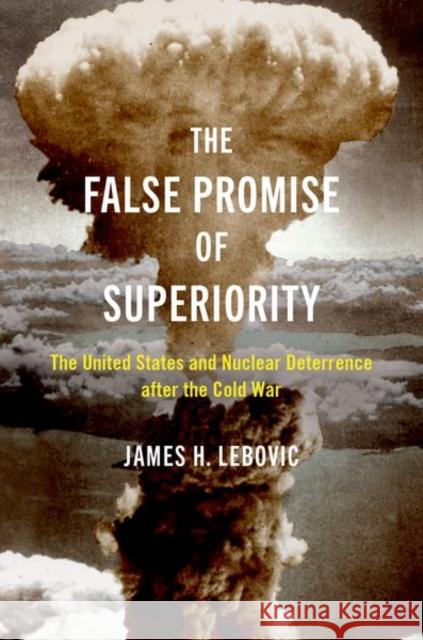The False Promise of Superiority: The United States and Nuclear Deterrence After the Cold War » książka
topmenu
The False Promise of Superiority: The United States and Nuclear Deterrence After the Cold War
ISBN-13: 9780197680865 / Angielski / Twarda / 2023 / 284 str.
The False Promise of Superiority: The United States and Nuclear Deterrence After the Cold War
ISBN-13: 9780197680865 / Angielski / Twarda / 2023 / 284 str.
cena 456,38
(netto: 434,65 VAT: 5%)
Najniższa cena z 30 dni: 359,45
(netto: 434,65 VAT: 5%)
Najniższa cena z 30 dni: 359,45
Termin realizacji zamówienia:
ok. 30 dni roboczych
Dostawa w 2026 r.
ok. 30 dni roboczych
Dostawa w 2026 r.
Darmowa dostawa!
Kategorie BISAC:
Wydawca:
Oxford University Press Inc
Język:
Angielski
ISBN-13:
9780197680865
Rok wydania:
2023
Ilość stron:
284
Wymiary:
23.5 x 15.6
Oprawa:
Twarda











